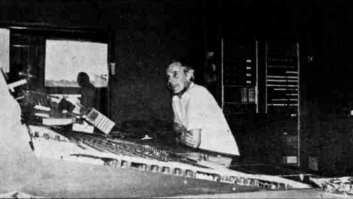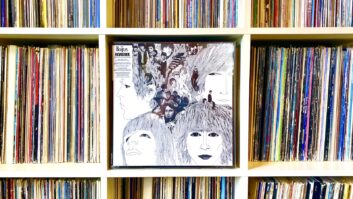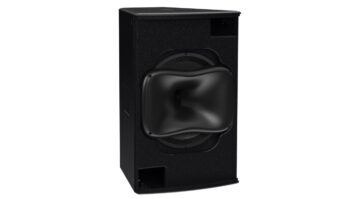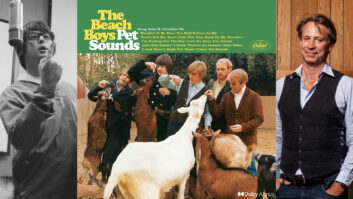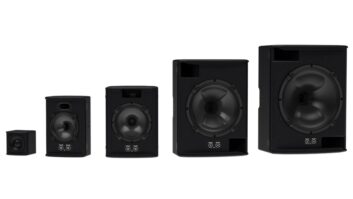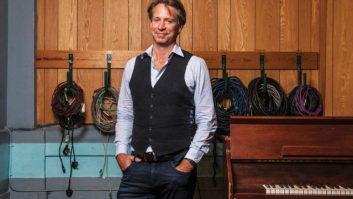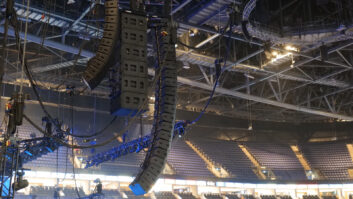Influential UK producer Martin Rushent died on Saturday, June 4, at the age of 63, leaving in his wake a legacy of New Wave classics that changed the pop landscape of the 1980s.
Though Rushent started out as an engineer in the early 1970s, working with the likes of Shirley Bassey, Fleetwood Mac, Gentle Giant, Curved Air and T-Rex, he’s best remembered for the influential stamp he left on New Wave in the 1980s, when he created sparse-yet-huge pop productions for the likes of The Go-Go’s (“Head Over Heels“), Altered Images (“I Could Be Happy”), Pete Shelley (“Homosapien”), The Stranglers, XTC, The Buzzcocks, Generation X and many others.
The most famous work of his lengthy career, however, was accomplished with Human League on the landmark 1981 album, Dare. Initially, the band’s label turned to Rushent to help reinvent the group’s sound after its main songwriters quit to form Heaven 17. While the remaining members—by their own admission, not the world’s greatest musicians—had made some woolly demos for what would become Dare, Rushent took their raw materials to a whole new place.
As he recalled to the BBC, “They were under the impression that I was going to work on what they’d done so far and improve that and carry on. I said, ‘No, I’m not doing that; we’re starting again’, which was a bit of a shock for Phil [Oakey, lead singer]. He argued about that, but I said, ‘No, if I’m going to produce you, you’re going to do what I tell you to do’. This is my attitude to everybody I produce; it’s a sort of democratic dictatorship!”
Easily proving that claim is the signature hit, “Don’t You Want Me.” The original demo above shows where the band was initially headed stylistically, aiming for a song that was stark and perhaps evocative as an art pop piece, but also, at best, a forgettable album track of the period. With a broader—but not lush—new arrangement using comparatively warmer synth sounds and his trademark Linn drum machine, Rushent brought a new palate of color to the song, resulting in the now-familiar, gleaming final product.
With the single’s success, Rushent got the gig to produce the rest of Dare, and the result was a sleek, moody, keyboard-heavy album that mixed the avant-garde synths of European acts like Kraftwerk with the musically irreverent vibe of early New York hip-hop remixes. An instant, mainstream smash, Dare won a Brit award and today is cited as a cornerstone of everything from Trance to Electronica. As a weird footnote, it was also the last album legendary music journalist Lester Bangs ever heard: side two of Dare was found spinning endlessly in its runout groove when his body was discovered in his New York apartment.
But back to Rushent: Trumping the production effort he’d already made, less than six months after the release of Dare, Rushent essentially invented the remix album, when he reworked that album into Love and Dancing by The League Unlimited Orchestra. Using the same tracks, the largely instrumental versions mixed Jamaican dub with the dark synth tones, all the while eschewing vocals except for the occasional near-instrumental effect. The results, though products of their times, hold up today for their inventiveness, made all the more impressive when considering the equipment at hand back then.
Rushent left production in the mid-1980s, taking on an A&R post with Virgin Records before leaving the music business for years, reportedly to raise his family as a single parent. One of his last productions at the time was the debut album by Scottish also-rans, Then Jericho. Here’s a fascinating clip from a mid-1980s BBC series about computers, that illustrates not only how Rushent used then-cutting edge technology (samplers!) to record the band, but also a bit of his sense of humor as well.
In more recent years, Rushent had returned to recording, having produced an album by UK girl group The Pipettes, as well as taking on co-production of the second album by Does It Offend You, Yeah?—a band which features his son, James.
In the wake of his passing, a Facebook page filled with some truly amusing stories of Rushent’s studio days has been set up for those who wish to pay tribute to a production legend.

